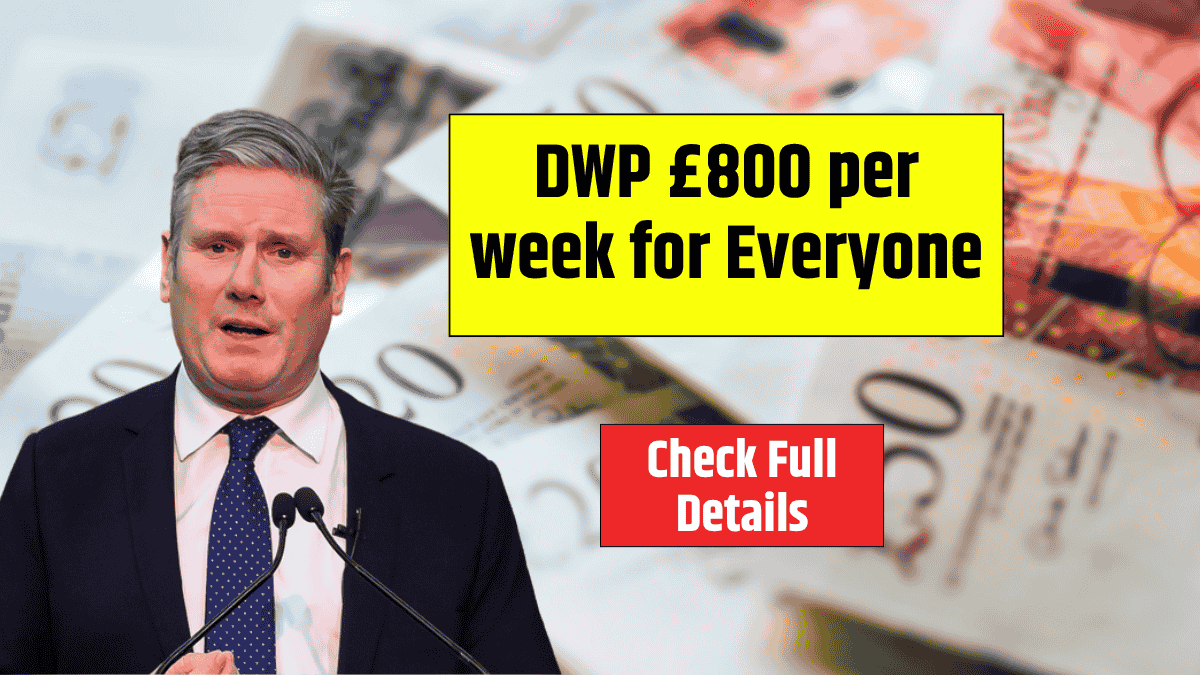People in the UK might have to wait even longer before they can retire. Financial experts are warning that the rising cost of the state pension may force the government to increase the state pension age faster than expected. This could affect millions of future pensioners.
Fidelity International, a well-known wealth management company, has shared concerns about the financial strain of maintaining the current pension system, especially the “triple lock” guarantee, which makes sure pensions rise every year. If no changes are made, the government may struggle to keep up with the growing expenses.
What Is the Current State Pension Age?
At present, the state pension age in the UK is 66. It is set to rise to 67 between 2026 and 2028 for people born after April 1960. After reaching this age, eligible people can start getting their state pension payments.
To receive the full new state pension—currently £230.25 per week—a person must have at least 35 years of National Insurance contributions. If you have fewer years, the amount you receive will be lower.
Future Pension Age Increases
Currently, the government plans to increase the state pension age from 67 to 68 between April 2044 and April 2046. However, this may happen sooner, depending on several factors, including how long people are living.
Some countries have already taken strong action. For example, Denmark has passed a law to raise its state pension age to 70 by 2040. Experts believe that the UK could follow a similar path due to rising costs.
Why the Triple Lock Is Causing Worry
The triple lock is a rule that increases the state pension every year by whichever is highest among three things: inflation (based on the Consumer Price Index), average earnings growth, or 2.5%.
While this policy helps pensioners keep up with the rising cost of living, it is becoming more expensive for the government. According to Fidelity, state pension spending reached 5.06% of the UK’s GDP in the 2023-24 tax year. That is a big slice of the country’s budget.
Even though the percentage might go down in the next few years, long-term forecasts suggest pension spending could reach 8% of GDP by 2072/73. This is if the economy grows slowly or remains unstable.
Possible Changes in the Future
Ed Monk from Fidelity International said that raising the state pension age more quickly is one way to cut costs, although it may be difficult to justify. One major reason is that life expectancy in the UK is no longer increasing as fast as before. So, people may not live long enough to enjoy a longer retirement, making it unfair to delay their pensions.
Another possible change could be reforming the triple lock itself. Though political parties have promised to keep it until the end of this parliament, future governments might reconsider due to the high cost.
The UK’s pension system is under pressure as the population ages and economic conditions change. While the triple lock has helped pensioners maintain their income, the growing cost means the government may need to make tough decisions. That could mean raising the pension age sooner than expected or changing how pensions are calculated. Either way, it’s clear that reforms are likely in the future to keep the system going.
FAQs
What is the current state pension age in the UK?
The current state pension age in the UK is 66. It will rise to 67 between 2026 and 2028 for people born after April 1960.
What is the triple lock on state pensions?
The triple lock guarantees that the state pension increases each year by the highest of inflation, average earnings growth, or 2.5%.
Why is there concern about the cost of the state pension?
The cost of the state pension is rising quickly, and it already makes up over 5% of the UK’s GDP. Experts say it could reach 8% by 2072 if no reforms are made.
Will the UK increase the state pension age faster than planned?
It’s possible. Financial experts warn that the rising cost of pensions may force the government to raise the pension age sooner than the current schedule.
Is the triple lock system at risk of being scrapped?
For now, all major UK political parties have promised to keep the triple lock, but future changes could happen due to high costs.

















